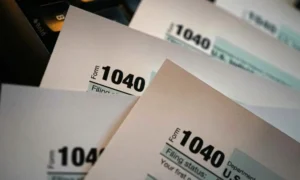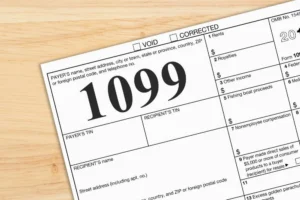Divorce is extremely emotionally, logistically, and financially complicated. Couples often divorce or separate to escape issues that arise during the marriage. Unfortunately, all these elements are compounded when you find out you are being assessed penalties as a result of jointly filing your taxes. These issues can even arise when you are happily married, which can put strain on your otherwise-good relationship. Unfortunately, tax liability can still follow an individual around even after the separation takes place.
You do not have to deal with these issues on your own, however. Taxpayers often file Form 8857 to request relief from tax liability, interest, and related penalties when they believe their former or current spouse should be held responsible for all or part of the tax debt. This guide can help you get the innocent spouse relief you need
What is Innocent Spouse Relief
Innocent spouse relief provides relief from additional taxes you owe if your current or former spouse failed to report income, claimed improper credits or deductions, or reported income improperly. To qualify for innocent spouse relief from the Internal Revenue Service (IRS), you need to meet all of the following conditions:

- You filed a joint return with an understatement of tax attributed solely to your spouse’s erroneous item. This item includes income — credits, property basis, and deductions — that is received by your spouse but was omitted from or incorrectly reported.
- You can establish that at the time you signed the tax return, you had no reason to know or did not know there was an understatement of tax.
- When you consider all the facts and additional information, it would be unfair to hold you liable for the understatement of tax.
- The taxpayer must apply for this relief within two years of the IRS initiating collection. If you do not ask for this relief within the allotted time or do not qualify for it, you will be liable for the understated tax.
The IRS will typically not grant innocent spouse relief in cases of tax underpayment, which is when you owe more taxes than you paid. Simply put, you may also be liable if the joint tax return indicates an amount due and your spouse does not pay the taxes. However, if there is both an understatement and an underpayment of taxes, you may be relieved of both.
Joint Filing
In some instances, the IRS may inform a US taxpayer that their estranged spouse failed to fully pay taxes regarding a joint filing. Such a taxpayer will be understandably concerned that the IRS may hold them accountable for this tax debt.
Still, tax liability under such circumstances is not automatic. The IRS does in some instances provide taxpayers relief. This includes a type of relief known as “separation of liability.” Under separation of liability, the innocent spouse is only accountable for the liability allocated to them by the IRS.
Seeking this relief can prove challenging, however. A spouse may be ineligible for such relief if found to have knowledge of the other spouse’s conduct. Disqualification may also occur if the spouse seeking relief transferred property for the other spouse with the purpose of avoiding paying taxes. (The IRS has various criteria on what would constitute knowledge regarding tax avoidance purposes during such property transference.)
There are also a number of other rules that govern whether one is eligible for such relief. Entitlement for such relief requires a legal separation or a showing you are no longer married. The IRS also requires you as the spouse seeking relief to not reside in the same household.
What You Need to File Form 8857
To seek innocent spouse, equitable, or separation of liability relief, you need to submit a completed Form 8857 to the IRS. Form 8857 is a Request for Innocent Spouse Relief, and it is used to request relief from tax liability, penalties, and interest when you believe your current or former spouse is responsible for these tax issues.
To File Form 8857 correctly, you need to gather the following information:

- General information about you and your spouse or ex-spouse
- The specific tax years which you are seeking relief for
- Your current financial situation
- Evidence showing your involvement in tax preparation and household finances
- Whether you are a survivor of domestic violence
- Any information that can help you show that it would be unfair to hold you liable
- Any details showing your spouse’s fraud or their deceit involving the tax return
The information you provide must help the IRS get a good idea about your overall situation. If you do not provide enough information, the IRS can deny your claim.
Form 8857 Instructions:
You need to file Form 8857 as soon as you find out that you are being held liable for taxes you believe should only be your spouse’s. You have two years to file from the time the IRS first tries to collect from you to do so, but there are some exceptions.
To file IRS Form 8857:
- Download the complete Innocent Spouse Relief form from IRS website.
- Fill out all the specific information required, including current name, address, daytime phone number(s), information about your employer, your assets, and amount of income.
- Attach a statement explaining why you qualify for this type of relief.
- Make sure you write your Social Security number and name on all the attachments.
- Mail the documents to the appropriate addresses. Do not file Form 8857 with your income tax return or to the Tax Court.
- You must answer Question 30 thoroughly and provide information to help the IRS determine if it would be unfair to hold you liable for the tax debt. Ensure you include any details about your spouse’s fraud involving the tax return and information that made it hard for you to know or learn about the tax understatement.
- Wait for a response. By law, the IRS will have to contact your current or former spouse to let them know you filed the form and allow them to participate in the process. There are no exceptions to this rule, even for victims of domestic violence or spousal abuse.
After you file the documentation and your spouse is contacted, the IRS will send a preliminary determination letter notifying you and your spouse of its decision. If neither of you appeals the decision, the IRS will issue a final determination letter. If either of you appeals to the IRS Office of Appeals, that office will give a final determination letter after reviewing your case.
If you do not receive a final determination from the IRS within six months, you can then ask the U.S. Tax Court to review your case. If you received a final judgment from the IRS, you need to file a petition with the Tax Court within 90 days.
IRS Form 8857— Get the Help you Need
Applications for Innocent Spouse Relief are complicated, tedious, and take anywhere from 12 to 24 months to process. You should not have to tackle these complexities on your own. Contact Silver Tax Group today and speak with an expert about your Form 8857 questions or to discuss the types of relief you may be eligible for.





